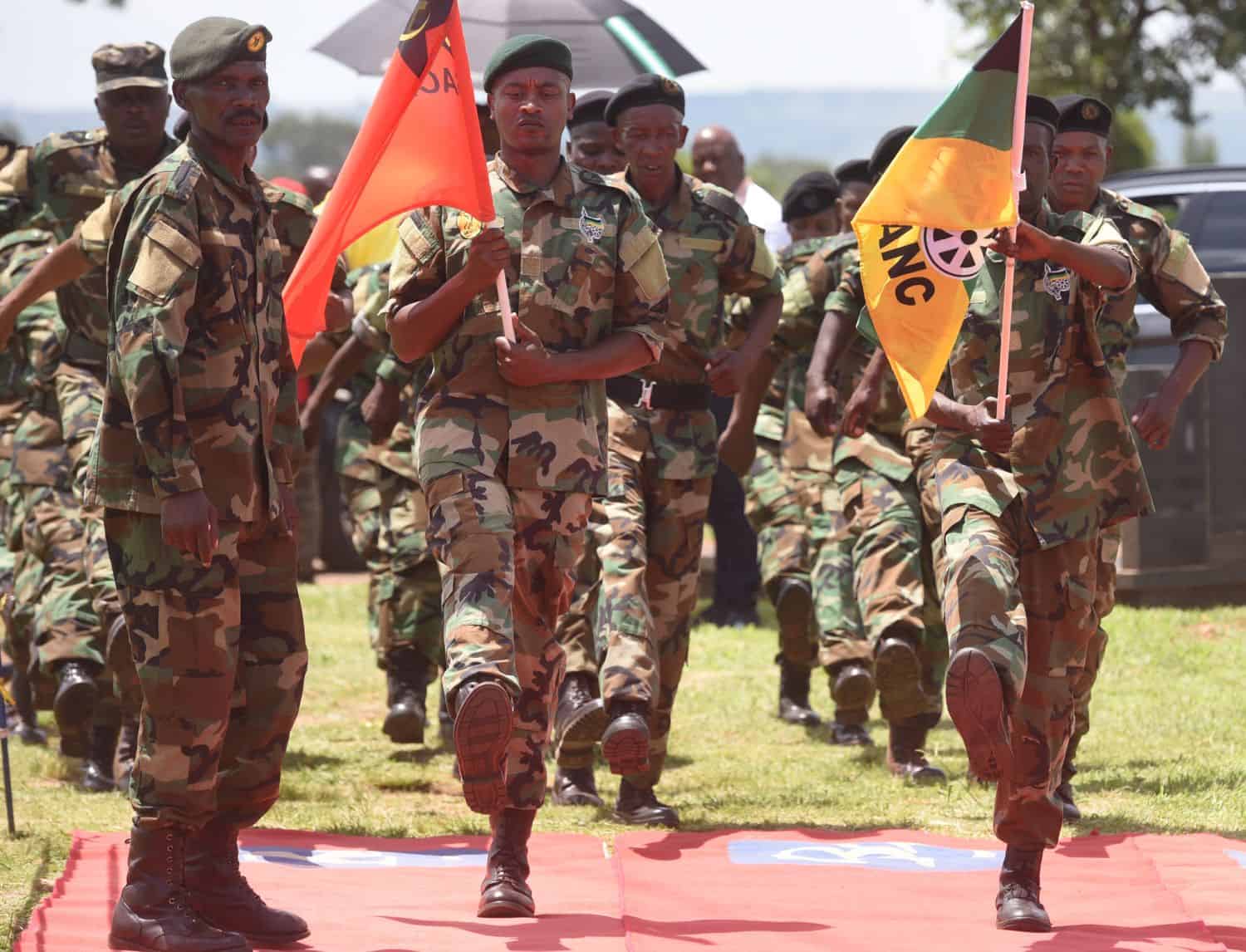The Gauteng provincial government had a 3% budgeted target for military veteran support programmes in the 2024-25 financial year.

Funds earmarked for businesses owned by military veterans have been given to companies headed by directors who had not yet started school when the new South Africa was born.
A budget allocation meant for military veterans exists within the Gauteng government, but the opposition has called the past two financial years’ payments “questionable”.
The Department of Sport, Art, Culture and Recreation (SACR) recently confirmed its expenditure on military veteran support programmes via a written response to questions posed in the provincial legislature.
Eligibility questioned
SACR MEC Matome Chiloane signed off on a response that listed the payments made to companies owned by military veterans for services to the government, including the ID numbers of the relevant directors.
The Democratic Alliance noted the definition of military veteran listed in the Military Veterans Act is someone who served in a military organisation during apartheid or in the army before 27 April 1994.
“This excludes individuals born after this period or who were still children during the years of military service eligibility,” stated the DA.
The Gauteng government gave R8.5 million to companies owned by military veterans in the 2023-24 and 2024-25 financial years, but at least R3.5 million of that went to directors born in or later than 1990.
One payment of R147 700 was made to a company for language services whose director was born in 1995, while R45 000 was spent on a transformation programme provided by a company whose owner was born in 1992.
The department gave R966 000 to a company for tablets, R405 000 to another for eventing services, and R486 000 to a third for a sports competition, with these owners being born in 1990, 1991 and 1996, respectively.
Five other payments of a combined R1.5 million were made to directors born between 1990 and 1995 for logistics and capacity building, among others.
Socio-economic support
Finance MEC Lebogang Maile’s budget speech reaffirmed the provincial government’s commitment to assisting selected groups with business funding.
“We will continue to support provincial socio-economic transformation initiatives by monitoring the 60% spend on Gauteng township-based suppliers; particularly SMMEs owned by Africans, women, people with disabilities, the youth and military veterans,” stated Maile in July.
Chiloane’s response clarified the payments were not for contracts, but part of a larger support programme.
“The department supports these companies through requests for quotations in line with the annual performance plans indicators, that is, percentage spent on military [being] 3%,” stated Chiloane’s response.
Targeted spend on military veterans was 3% in the last financial year, up from 1% in the 2023-24 financial year.
“The department further notes the improvement in the 2024-25 financial year on the military veteran support,” concluded Chiloane.
‘Far too young’
DA Shadow SACR MEC Kingsol Chabalala accused the department of neglecting job creation initiatives, stating some beneficiaries were “far too young to be categorised as military veterans”.
Chabalala said the DA will urge Chiloane to investigate the payments “transparently and without bias”, to ensure the funds reach their intended targets.
“This reeks of a blatant abuse of procurement processes to secure lucrative contracts.
“It stands as a glaring example of how people in this department will stop at nothing, even exploiting the legacy of veterans, to divert public resources for personal enrichment,” Chabalala concluded.
NOW READ: R34.2 billion of defence and military budget to go to salaries






